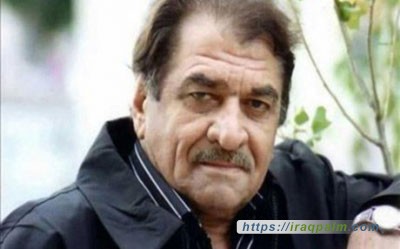

Biography of an Iraqi creator

Sherko Be Kess
Sherko Be Kess: A Kurdish poet born in Sulaymaniyah- Iraq on 2nd May 1940. His father, Faeq Be Kess, is one of the famous Kurdish poets. He was a patriotic militant and one of the leaders of the uprising of 6th September, 1930, who was charged and imprisoned, and then expelled to southern region of Iraq.
His father was also a supporter of women's freedom and was influenced by the theories of Qasim Amin and the poetry of Al-Rasafi, Al-Zahawi the great poets of that era.
His mother eighty years old is living with his sister in USA. She had the role of creating the poet soul in his depth.
He inherited from his mother the knowledge and love to the Kurdish Language through the legends, folk tales, and the Kurdish songs she used to tell him and his sisters.
He continued his school studies in Sulaymaniyah city where education was conducted in the Kurdish language, except for the Arabic language lesson, which was taught as a second language.
He joined the political work with the Kurdish movement, and published more than 35 poetry collections.
As the poet Sherko inherited literature, love of his language and struggle from his parents therefore the poetic experience came to his life early.
The Iraqi regimes that continued ruling of Iraq were famous for their tyranny and cruelty and spread fear and insecurity in people's hearts, especially young ones. That's what prompted many young men resorting to the mountains and joining the Kurdish resistance factions to defend justice and Kurdish rights. The same happened to Sherko Be Kess who joined the resistance factions in 1965. He wrote many poems related to the resistance movement and patriotism being influenced by Arabic and Palestinian poetry in particular.
In 1974 he joined the Kurdish resistance movement for the second time and worked in radio and media, but when the resistance movement collapsed after March agreement between Saddam Hussein and Shah of Iran in 1975, he returned to Sulaymaniyah. Few months later the poet was deported to western Iraq to (Ramadi Governorate - Heet District - Al-Baghdadi Village) and he was put under house arrest for three years.
In the late seventies the authorities returned him to Sulaymaniyah, and at the end of 1984 he joined the new resistance movement for the third time, and worked there with the resistance media, and joined the Union of Kurdistan Writers in the Mountains.
In 1991, after the mass uprising, the poet returned to Sulaymaniyah. Several months later, he nominated himself on the Green List as an independent poet and became a member of the first Kurdish parliament.
Through Parliament, he became the first Minister of Culture in the region and remained in this position for a year and a few months, then submitted his resignation due to democratic violations, so he published his resignation and returned again to Sweden.
Since the issuance of his first poetry collection in 1968 till today, he published in Kurdish language more than thirty poetry collections. These collections included short and long poems, poetic plays, open texts and poetic stories.
He translated from Arabic into Kurdish novel of "The Old Man and the Sea" by Ernest Hemingway. Some of his poems selections have been translated into more than ten languages.
In 2001 he was awarded "Thira Merd" Prize for Poetry in Sulaymaniyah. In 2005 he was awarded the Iraqi Golden "Phoenix Award."
Recently, he has been writing a lot, publishing a little. A He was the director of "Sardam Cultural Establishment", which he supervised until his death.
He was 73 years old when he passed away on 4th August 2013 in Stockholm – Sweden.
He left behind many litrary books, such as:
* The Chair Diwan (open text).
* The Cross and Serpent.
* Diary of a poet.
* Two mountain chants.
